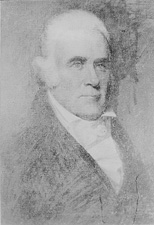of Redoshi and the info. I never learned about her, the ship, or Africatown while working at the National Archives, aka 'The Paper Mountain.' The story should be told in 3D, I hope PBS & Henry L. Gates are working on an upcoming program.

- Wolf/DeWolf Family of Bristol, Rhode Island, Slave Traders, James DeWolf
https://www.tracingcenter.org/resources/background/james-dewolf/
Tracing Center. James DeWolf of Bristol, Rhode Island (1764-1837) was a United States senator and a wealthy merchant who, at the time of his death, was reported to be the second richest person in the country. He was also the leading slave trader in the history of the United States. Over fifty years and three generations, from 1769 to 1820, James DeWolf and his extended family brought approximately 12,000 enslaved Africans across the Middle Passage, making the DeWolf1 family our nation’s most successful slave-trading family.
In a notorious incident aboard the slaving ship Polly in 1789, James DeWolf ordered an enslaved woman, dead or dying of smallpox, thrown into the Atlantic Ocean. While there was an attempt later to prosecute him for this act, he was found not guilty, on the grounds that this was his duty as ship’s captain. (See below, “The incident aboard the Polly.”)
- The DeWolf slave trade: The DeWolf family fortune was built on the buying and selling of human beings. DeWolf slave ships brought the enslaved from the west coast of Africa to auction blocks in Charleston, South Carolina and other southern U.S. ports; to Havana, Cuba and to other ports in the Caribbean; to their own sugar plantations in Cuba; and into their own homes. James DeWolf owned a rum distillery, and he and his family started both a bank and an insurance company, all to profit even further from the slave trade. They even sent a family member to establish an auction house in Charleston, S.C., where many of their slaving voyages ended up.
In the 1790s and early 1800s, DeWolf and his brothers virtually built the economy of Bristol, Rhode Island: many of the buildings they funded still stand, and the stained glass windows at St. Michael’s Episcopal Church bear DeWolf names to this day. Across the generations, their family has included state legislators, philanthropists, writers, scholars, and Episcopal bishops and priests.
- Illegal slave trading: The DeWolf family continued in the slave trade despite state and federal laws prohibiting many of their activities in the late 1700s. Their efforts to circumvent those laws eventually lead them to arrange a political favor with President Thomas Jefferson, who agreed to split the federal customs district based in Newport, R.I. This maneuver permitted the appointment of a customs inspector just for Bristol, and the choice was Charles Collins, the brother-in-law of James DeWolf, who conveniently ignored the slave ships moving in and out of harbor.
One member of the family, George DeWolf, is known to have continued in the trade after 1808, when Congress banned the importation of slaves into the U.S. He did so until 1820, when Congress made slave trading a hanging offense. James DeWolf himself was reported to have abandoned the slave trade as of January 1, 1808; there is, as yet, no evidence to demonstrate that he took part in any slaving voyages after that date, but it seems quite possible that he did.
The DeWolf family’s complicity in slavery continued after 1820 in other ways, too, as the family maintained slave plantations in Cuba and James DeWolf invested his slave trade profits in textile mills which used slave-produced cotton.
Today, there are as many as half a million living descendants of the people traded as chattel by the DeWolfs…"
 = new reply since forum marked as read
= new reply since forum marked as read
